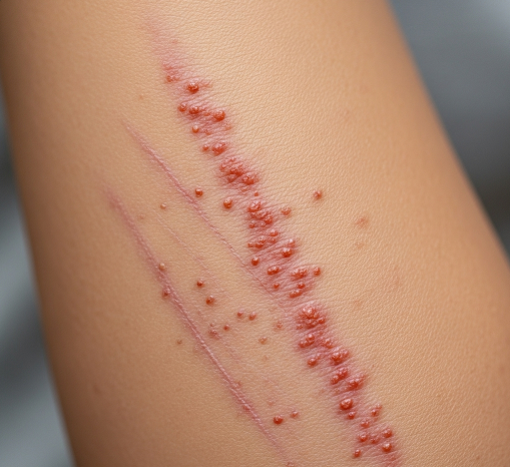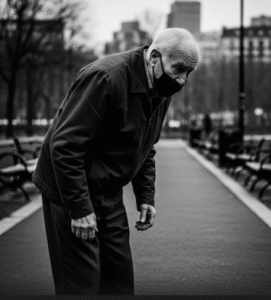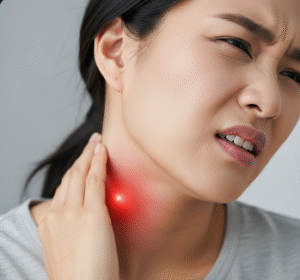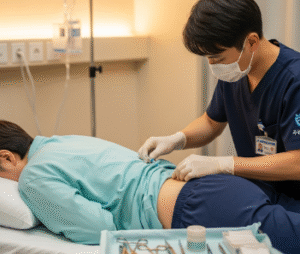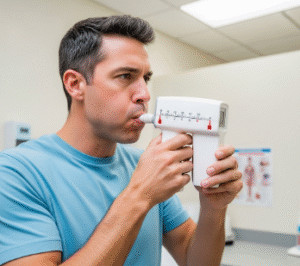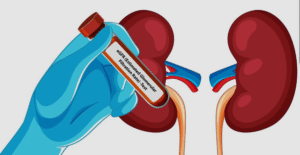Overview
Koebner Phenomenon, also known as the isomorphic response, is a skin reaction in which new lesions appear on previously unaffected skin following trauma or injury. It is commonly observed in several chronic inflammatory skin diseases, most notably psoriasis, lichen planus, and vitiligo. This phenomenon highlights the skin’s abnormal response to injury in predisposed individuals and can complicate the management of underlying skin conditions. In Korea, dermatologists are well-versed in diagnosing and managing Koebner Phenomenon as part of comprehensive care for chronic skin diseases.
What Is Koebner Phenomenon?
Koebner Phenomenon refers to the development of typical disease-specific skin lesions at sites of trauma, such as cuts, scrapes, burns, surgical scars, or pressure areas. Unlike ordinary skin healing, in individuals with certain skin disorders, the trauma triggers an inflammatory response resulting in new lesions mirroring the primary disease. The phenomenon usually manifests within days to weeks after injury and can vary in severity.
Symptoms
- Appearance of new skin lesions at the site of skin injury or trauma
- Lesions resemble the underlying skin disease (e.g., psoriatic plaques, lichen planus papules)
- Lesions may be itchy, red, scaly, or hypopigmented depending on the condition
- The onset is typically delayed, occurring days to weeks post-trauma
- The response is limited to the injured area without affecting the surrounding healthy skin
Causes
Koebner Phenomenon is triggered by skin trauma or injury in genetically or immunologically predisposed individuals. The exact mechanism is not fully understood but involves:
- Immune system activation and inflammation at the injury site
- Release of cytokines and growth factors stimulating lesion formation
- Altered skin barrier and abnormal wound healing responses
- Genetic susceptibility to chronic inflammatory skin diseases
Risk Factors
- Having a chronic inflammatory skin disease such as psoriasis, lichen planus, or vitiligo
- History of skin trauma including scratches, surgical procedures, burns, or tattoos
- Repeated mechanical irritation such as friction or pressure
- Poorly controlled underlying skin condition increasing sensitivity to injury
Complications
- Worsening of skin disease with widespread lesion development
- Increased discomfort, itching, and cosmetic concerns
- Difficulty in managing underlying skin condition due to recurrent new lesions
- Psychological distress and decreased quality of life from visible skin changes
Prevention
- Avoiding unnecessary skin trauma, including scratching, picking, or harsh treatments
- Using protective clothing and gentle skincare routines
- Prompt treatment of minor skin injuries to prevent lesion formation
- Effective control and management of underlying skin diseases
- Patient education about the risk of Koebner response following trauma
Treatment Options in Korea
Korean dermatology centers focus on both preventing and managing Koebner Phenomenon within the context of the underlying skin disorder:
- Treatment of Underlying Skin Disease:
- Topical therapies such as corticosteroids, vitamin D analogs, or calcineurin inhibitors
- Phototherapy and systemic treatments (e.g., biologics) for moderate to severe cases
- Emphasis on maintaining disease remission to reduce Koebner reactions
- Management of New Lesions:
- Prompt application of anti-inflammatory and wound healing agents
- Avoidance of additional trauma and irritants to affected areas
- Supportive skincare to maintain skin barrier integrity
- Patient Education and Follow-up:
- Counseling on skin care, injury avoidance, and early recognition of new lesions
- Regular monitoring to adjust treatment plans and minimize flares
Korean dermatologists utilize advanced therapies and patient-centered approaches to minimize the impact of Koebner Phenomenon and improve long-term outcomes for patients with chronic skin diseases.

